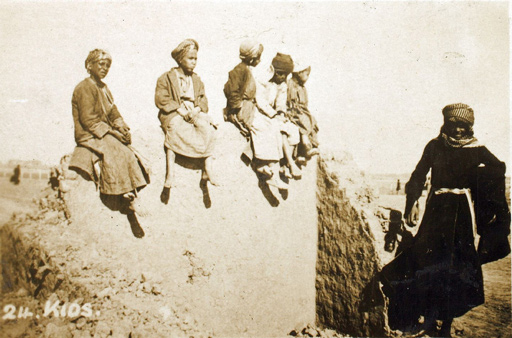The views expressed in our content reflect individual perspectives and do not represent the authoritative views of the Baha'i Faith.
Baha’u’llah returned to Baghdad from the remote mountains of Kurdistan in March 1856 to find the Babis even more dispirited and divided than when he had left. But there was one difference—by then the vast majority could see that those who had pretended to leadership were, in fact, utterly incapable of restoring the spirit of the new religion. Now most of the Babis turned with a new appreciation to Baha’u’llah for guidance. This included almost all of the individuals who had themselves previously claimed to be the Promised One the Bab had foretold.
Although Baha’u’llah still would not publicly announce his mission for some time, he continued to compose various writings immediately upon his return to Baghdad. These were revealed in Arabic and Persian, sometimes in combination, and always in an original and matchless style. Over the course of time they proved a means of spiritual rejuvenation for the Babi community, as well as a source of inspiration for others.
One of the most important of these works is known as the Hidden Words. This is a compilation of verses composed in Persian and Arabic. Baha’u’llah states in this same work that they represent the “inner essence” of the religion of God as“ revealed unto the Prophets of old.” The themes related in the Hidden Words also make up the ethical heart of the Baha’i teachings, which Baha’u’llah would reiterate and elaborate upon for the remainder of his ministry.
The verses address humanity collectively and individually, conveying God’s infinite love for humankind, the high potential with which He has invested us, and His desire that we all fulfill our true purpose, which is none other than to know and to love Him. The tone is by turns exultant, admonishing, and poignant; for while the verses tell of God’s love, they also lament humanity’s rejection of Him.
Telling of God’s love for us, Baha’u’llah addresses humanity:
O Son of Man! Veiled in My immemorial being and in the ancient eternity of My essence, I knew My love for thee; therefore I created thee, have engraved on thee Mine image and revealed to thee My beauty. – The Hidden Words, p. 4.
O Son of Man! I loved thy creation, hence I created thee. Wherefore, do thou love Me, that I may name thy name and fill thy soul with the spirit of life. – ibid, p. 4.
In other verses we are reminded of our true reality, which is spiritual rather than physical. We are counseled by God to turn towards Him and to attain the station for which we were created. We are warned that we will find neither peace nor happiness unless we do so, but if we do, we are assured of eternal life. The verses of the Hidden Words make it clear that nearness to God is dependent on faith, purity of heart, and good deeds. Time and again they exhort us to live an upright and moral life:
O Son of Spirit! My first counsel is this: Possess a pure, kindly and radiant heart, that thine may be a sovereignty ancient, imperishable and everlasting. – ibid, p. 3.
One of the virtues we are called upon to acquire is justice, which enables an individual to investigate reality impartially and free of blind imitation:
O Son of Spirit! The best beloved of all things in My sight is Justice; turn not away therefrom if thou desirest Me, and neglect it not that I may confide in thee. By its aid thou shalt see with thine own eyes and not through the eyes of others, and shalt know of thine own knowledge and not through the knowledge of thy neighbor. Ponder this in thy heart; how it behooveth thee to be. Verily justice is My gift to thee and the sign of My loving kindness. Set it then before thine eyes. – ibid, p. 3.
Other verses call upon us to show compassion and love for others. Some of them stress that we are all created equal. Others exhort humanity, and rulers in particular, to show special compassion for the poor and the oppressed. This theme resurfaces time and again in Baha’u’llah’s writings. Failure in this regard, He warns, will invite God’s wrath:
O Children of Dust! Tell the rich of the midnight sighing of the poor, lest heedlessness lead them into the path of destruction, and deprive them of the Tree of Wealth. To give and to be generous are attributes of Mine; well is it with him that adorneth himself with My virtues. – ibid, p. 39.
O Oppressors on Earth! Withdraw your hands from tyranny, for I have pledged Myself not to forgive any man’s injustice. This is My covenant which I have irrevocably decreed in the preserved tablet and sealed with My seal of glory. – ibid, p. 44.
Certain passages make clear that, although God wishes what is best for us, we are given freedom to choose. Because of this we often become overly attached to worldly things in the mistaken belief that the pursuit of material pleasures will bring happiness. True happiness comes when we learn to love God and follow His commandments, thereby acquiring divine attributes. If we are obedient, we draw near unto God and thereby acquire eternal life; if not, we face eternal remoteness from Him, which is spiritual death. Other verses lament that human beings have all too often forgotten God. Instead of rising to our high destiny, we have chosen to follow our baser inclinations. Such verses express God’s concern for us, reminding us lovingly not to forgo eternal bliss in selfish pursuits:
O Moving Form of Dust! I desire communion with thee, but thou wouldst put no trust in Me. The sword of thy rebellion hath felled the tree of thy hope. At all times am I near to thee, but thou art ever far from Me. Imperishable glory have I chosen for thee, yet boundless shame thou hast chosen for thyself. While there is yet time, return, and lose not thy chance. – ibid, p. 29.

















Comments
Sign in or create an account
Continue with Googleor